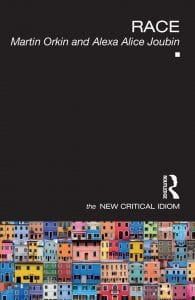
Cross-gender roles and performances permeate many of Shakespeare’s plays. Viola presents as pageboy Cesario for most of the dramatic action in Twelfth Night. Falstaff escapes Ford’s house as the Witch of Brainford in The Merry Wives of Windsor. Rosalind ventures into the woods as Ganymede in As You Like It. In that same comedy, Celia (as Aliena), Phoebe, and Audrey were also played by boy actors in Shakespeare’s time. In Cymbeline, British princess Imogen dresses as a male servant, Fidele, on their quest to find their husband among the Roman soldiers. Read the open-access Borrowers and Lenders special issue on contemporary transgender performance of Shakespeare. Continue reading


 Global Shakespeare can be studied through two interrelated concepts: performance as an act of citation and the ethics of citation. Appropriating the classics carries strong ethical implications. A crucial, ethical component of appropriation is one’s willingness to listen to and be subjected to the demands of others. These metaphorical citations create moments of self and mutual recognition. Seeing the others within is the first step toward seeing oneself in others’ eyes. The act of citation is founded upon the premise of one’s subjectivity, the subject who speaks, and the other’s voice that one is channeling, misrepresenting, or appropriating.
Global Shakespeare can be studied through two interrelated concepts: performance as an act of citation and the ethics of citation. Appropriating the classics carries strong ethical implications. A crucial, ethical component of appropriation is one’s willingness to listen to and be subjected to the demands of others. These metaphorical citations create moments of self and mutual recognition. Seeing the others within is the first step toward seeing oneself in others’ eyes. The act of citation is founded upon the premise of one’s subjectivity, the subject who speaks, and the other’s voice that one is channeling, misrepresenting, or appropriating. 
